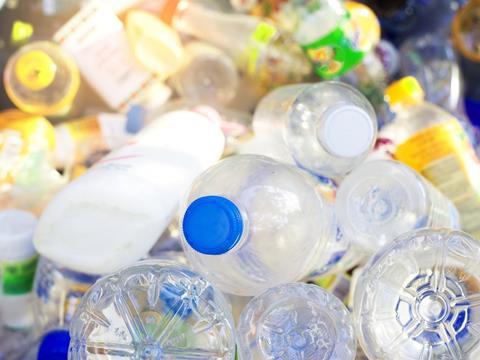
EuRIC has commended the COREPER deal on the Packaging and Packaging Waste Regulation as a ‘significant milestone’ in holding imported plastics to EU standards and strengthening European competitiveness – yet it fears that priority access to plastic recyclate could impact the internal market.
The Committee of Permanent Representatives – a European Council preparatory body consisting of the head or deputy head of mission from each EU Member State – came to a deal on the Packaging and Packaging Waste Regulation on 15th March. EuRIC believes this ‘marks a significant step forward’ in the pursuit of environmental and industrial circularity for packaging.
It goes on to describe the deal as the ‘best outcome’ in light of trade-related delays and its conclusion following the removal of any condition of origin for plastics accounting for recycled content.
EURIC president Olivier François states that “setting equivalent conditions that guarantee that imported recycled plastics meet equivalent standards to those set in the EU is vital for ensuring European industrial sovereignty and competitiveness, while delivering climate objectives and fostering a truly circular economy.”
Furthermore, EuRIC emphasizes the importance of enforcing conditions regarding imports of recycled plastics for use in packaging products on the EU market. As well as aligning with the World Trade Organization’s rules, the deal is expected by EuRIC to maintain consistency within the continent and complement the ban on plastic waste exports to developing countries.
Yet EuRIC cautions that allowing Member States to prioritize access to recycled plastics could disrupt Europe’s internal market – instead suggesting that meeting recyclability requirements and raising collection rates stand a better chance at achieving circularity.
“Ambitious recycled content targets are crucial for driving investments in Europe and building the industry capacity to meet them,” François continues. “This practically means both more circular packaging products but also more green industrial jobs within Europe.”
EuRIC underlines its willingness to work with EU institutions and ensure that the Regulation balances its environmental goals with green industrial growth in the pursuit of its sustainability targets.
A previous position paper saw EuRIC uplift the use of post-consumer plastic packaging waste sourced on the European continent. It feared that relying too much on plastic imports from outside the EU to meet recycled plastic targets could lead to unfair competition among industry players.
The packaging industry has also had its say on the provisional agreement between the European Parliament and Council – praising its stance against PFAS in packaging and steps taken towards the introduction of biobased plastics into sustainability targets, yet expressing reservations about exemptions for cardboard, a lack of certainty around imported plastics, and more.
If you liked this story, you might also enjoy:
The Brief: How viable is biorecycling for plastics?
Report: How the top brands are progressing on packaging sustainability
The Brief: Using ocean-bound plastic in packaging – how, why and should we?














No comments yet